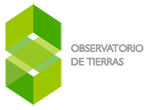-
What is a legal clinic
Legal clinics are academic undertakings aimed at changing the traditional way of teaching law. They are intended to allow law students to apply their knowledge in real cases with high national and international impact. It is about taking the law out of the classroom and putting it to the benefit of society. The clinics are built around real cases of public interest to enable the students to carry out legal actions that have an incidence on social problems in a given place. They do so under constant and ongoing supervision of a team of legal professionals with training on Human Rights issues and strategic litigation.
To achieve this objective, the teaching legal clinic selects certain cases of interest to the public and which because of their features may have incidence on legislative, legal or administrative policies to improve the situation of a community. These are not necessarily class action suits, but they should be in the public interest. Once the cases are selected, the team provides legal counsel on the case and uses legal and non-legal means to assist in solving the real cases. Law is only one of the strategies that can be used. The litigation that the clinics undertake includes pedagogical strategies, mass media or the press, etc. In this way, the new model allows both the law students to teach and the communities to learn. They seek to empower society.
-
Legal Clinic of the Observatory of Restitution and Regulation of Agrarian Property Rights
Given the focus of our work, the observatory’s clinic focuses exclusively on issues related to agrarian property rights. Our strategy is to take cases selected by the team and which because of their importance may influence the transformation or produce a solution for land-related social problems. To this end, we have a group of senior law students and a team of lawyers with experience in Human Rights litigation. Our work focuses on three types of processes: Firstly, those related to Law 160 of 1994 such as titles on vacant lands, divisions, etc. Secondly, those related to Law 1448 of 2011 on land restitution. Lastly, all constitutional actions that have the feature of having an incidence on agrarian property, such as lawsuits for the protection of constitutional rights, citizen interventions, class actions, group actions, actions for fulfillment, etc.
Our work is based on three concepts:
a) Strategic Litigation: Our clinic understands that the law is only one of the tools available for achieving transformations to resolve social problems. For this reason we use different means such as the media, press and communications strategies, pedagogical strategies, and in general advocacy processes to influence decision-making bodies. For us, community participation in these processes is very important. Without an active community, the results of the process are meager.
b) High impact cases of public interest: Since our objective is to educate law students in Human Rights litigation, our clinic believes it is important to take cases that are of interest to the community. For this reason, the cases are selected based on public interest criteria, in other words, that seek to solve structural problems and that have an incidence in decision-making bodies. We do not take private cases for personal gain.
c) Educational Model: The clinics are a means to educate on the law. Traditionally clinics have allowed undergraduate students to approach real life cases, so that once they are professionals they are able to act in the public interest. It is a way to raise awareness and to teach law in an efficient manner. This model usually operates “inwards”: from the law faculties to the law students. Our clinic believes that legal training is not only for law students. It is a way to bring people closer to the law. We want our cases or pedagogical campaigns to provide empowerment to civil society. Our clinic will work on an “outbound” basis: from legal academics towards the communities.
In order to fulfill our objectives, we have created three action lines:
a) Research:The cases of public interest must contribute both to the community and to academia. For us it is very important that the real experiences are useful for research showing the main legal issues involved in land-related proceedings. To a large extent, the lack of opportunities in gaining access to land is related precisely to the academics’ lack of knowledge of the “bottlenecks” that affect the process..
b) Litigation:We use two types of legal tools: first, those established by law for land restitution and distribution, including Law 160 of 1994 and Law 1448 of 2011, and second, constitutional actions that may apply in certain cases, such as lawsuits for the protection of constitutional rights (“tutela”), group actions, class actions, actions to seek fulfillment, motions for reconsideration, etc.
c) Advocacy: We increase the visibility of our work and seek to ensure that are cases are publicly debated. Through the media and access to decision-makers, we intend to spark public debate. It is very important to highlight that we do not litigate through the media. What we do is to call on the press to cover specific cases of national importance in order to facilitate access to decision-makers.
-
How we provide our services
Service Hours: Monday thru Friday from 10:00am to 12:00pm
Address: Cra 7 # 12B – 41, piso 9. Oficina 901
e-mail: ricardo.alvarez@observatoriodetierras.org
Our clinic performs a pre-selection of cases. We understand that we cannot accept all cases, and for this reason we have established three criteria to assist us in the selection process.
– Cases of public interest or national impact
– Preferably Class Action Cases:In the case of individual cases, their importance must be such that they may have an impact on the land policies issued by a given body.
– Cases in which it is possible to have access in the field: We avoid cases that involve risks to the integrity or tranquility of the students and lawyers of the Observatory.
– Direct effect on the communities
– Practical logistics: for example, in obtaining evidence, etc.
For the selection process, the students must prepare a viability paper with the objective of demonstrating to a meeting of the entire team of the clinic why the case should or should not be admitted. Each of the other team members may express their opinions. Consequently, the viability proposal must take into account the above criteria.
Once the case is admitted, we proceed to gather all the required documentation and, depending on the type of proceeding, to submit it to the appropriate competent bodies. Inasmuch as possible, none of the members of the Observatory will sign as representatives of the victims, for two reasons: Firstly, for reasons of empowerment. For the Observatory and its clinic it is very important that the victims act on their own behalf as subjects of rights. When this occurs, the law fulfills its objective as a tool for social transformation by putting the social bodies in action and by putting the State in direct contact with the victims and the people. Secondly, for practical reasons. Most agrarian property proceedings do not require assistance from a lawyer. However, some legal technicalities involved in these processes often complicate things. We avoid acting with power of attorney as much as possible, as this would imply that in many cases we would have to attend the legal proceedings, which involves costs that we cannot take on at this time. -
Direct legal assistance
Having explained the reasons why we avoid, whenever possible, acting with power of attorney for the victims, it is important to highlight that our support for the cases is direct. As occurs in other clinics of Universidad del Rosario, the fact that we do not sign in the processes in which we act does not imply that we do not provide direct assistance to the users.
In fact, the students are the ones who manage the cases and have direct contact with the process and the users. The social assistance does not lie in appearing formally in the proceedings. On the contrary, the Constitution and the Laws allow proceedings to take place without requiring a lawyer, with the objective of empowering the communities. This is the case, for example, of most lawsuits to defend constitutional rights. Consequently, if direct legal assistance is defined as cases in which it is necessary for the students to appear in the legal proceedings, most cases related to constitutional rights would not be cases of direct legal assistance. Our clinic will carry out all the activities aimed at fulfilling the communities’ rights, which implies a full commitment to the legal proceedings and stages.
-
Actual cases
Acción de Inconstitucionalidad: en trámite



